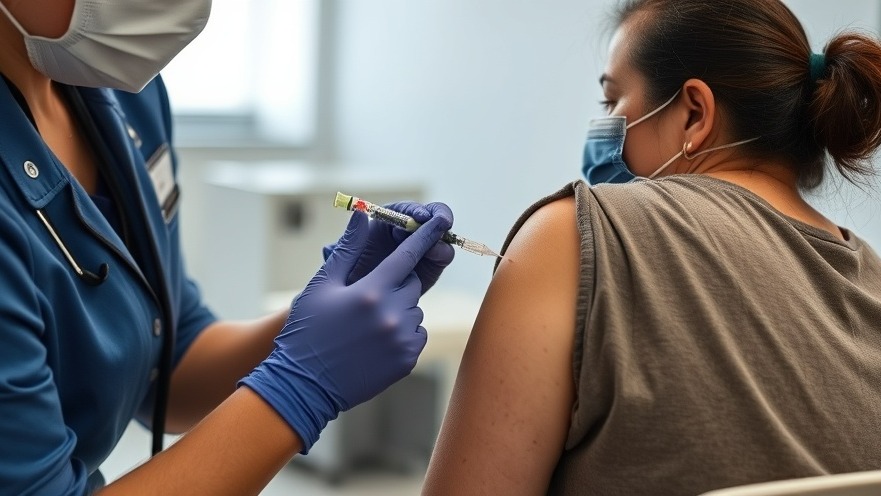
Vaccine Trust Under Siege: The Current Landscape
In a time when groundbreaking vaccine technology is innovating healthcare at an unprecedented pace, there’s an unsettling counter-narrative taking hold: an alarming rise in vaccine skepticism. This trend poses a profound challenge, especially for concierge medical practice owners, who are often on the front line of patient engagement and trust-building. The history of vaccination speaks loudest to the current climate, as outbreaks of preventable diseases like measles become more common, highlighting the harsh consequences of hesitancy.
Understanding Vaccine Skepticism: A New Era
As we stand in 2025, the landscape of public health has changed dramatically. The COVID-19 pandemic accelerated an erosion of trust, particularly during a time of political divisiveness. Vaccine misinformation, once relegated to fringe groups, has permeated mainstream discussions. Physicians and healthcare leaders agree that the need for rebuilding trust is urgent. A panel of experts recently convened to discuss this pressing issue, emphasizing that effective communication and genuine connection are paramount in combating skepticism.
Bridging the Gap: What Physicians Can Do
For concierge medical practices, rebuilding trust isn’t merely a noble gesture—it's pivotal for business survival. Physicians must take an active role in addressing misinformation within the community. Being information providers requires not just scientific literacy, but also emotional intelligence. This dual approach helps to engage patients meaningfully, providing them with the rationale behind vaccinations, and addressing their concerns empathetically.
Financial Implications of Vaccine Hesitancy
Skepticism around vaccines can lead to decreased patient loads, impacting the financial health of a practice. The fallout from lower vaccination rates could trigger an increase in preventable diseases, not only endangering public health but also placing additional burdens on healthcare systems. For concierge practices, this may mean needing to pivot business strategies to address potential declines in patient trust and loyalty, thus affecting overall profitability.
Taking Action: Evidence, Empathy, and Engagement
Panelists during the recent discussion posited that 'leading with evidence, empathy, and action' is the future of public health advocacy. This approach requires practices to foster open dialogues with patients to share scientifically backed data while also listening and validating their concerns. Integrating this mindset into the daily operations of a concierge medical practice can create an environment of transparency, ultimately enhancing patient trust and engagement.
Future Predictions: Navigating an Uncertain Terrain
The future of vaccine acceptance hangs in the balance, greatly influenced by the actions taken today by healthcare leaders. As misinformation becomes less an isolated phenomenon and more a defining feature of public discourse, practices must be proactive. Building community relations and utilizing technology for patient education will be essential. Furthermore, tracking vaccination trends and adapting to the evolving concerns patients express can help practices remain agile in their strategies.
Conclusion: Empowering Change in Patient Perception
As we navigate this intricate web of trust, skepticism, and innovation, it's evident that healthcare professionals, particularly those in concierge medicine, have a crucial role to play. Engaging communities with compassion, providing correct information, and standing firm against misinformation is essential. Embracing this responsibility can position practices not only as medical facilities but as cornerstone institutions in the fight against preventable diseases.
In an era demanding change, concierge practices must prioritize rebuilding trust to not only enhance their standing in local communities but also secure their financial health. Take the first step in fostering these vital community relations today, and be part of this necessary evolution.
 Add Row
Add Row  Add
Add 






Write A Comment